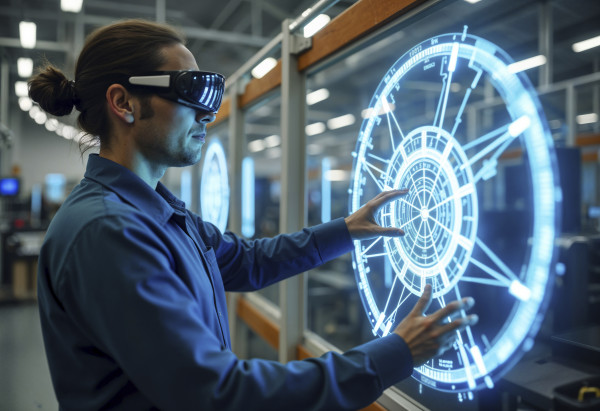Introduction
The metaverse has been dubbed the “next big thing” in e-commerce, with many industries investing heavily in digital real estate and platforms in order to gain market leadership. Alcohol beverage companies are also joining the metaverse, with brands such as Jose Cuervo and Heineken making their entry by building virtual distilleries and announcing their metaverse journeys. In particular, the Cuervo company is launching its first “virtual distillery” in Decentraland, becoming the first alcohol brand to offer fans over 21 unforgettable virtual experiences, impart tequila education, and offer limited-edition products and entertainment as a regular feature in the metaverse for tequila fans to visit for future generations. Let’s get more insights into how virtual distilleries are shaping products and industry education in the field of alcohol manufacturing.
How are virtual distilleries shaping up?
Alcohol brands are increasingly considering the metaverse not just a place to advertise but also a platform for product branding and industry education. Virtual distilleries, bars, and breweries offer a space for customers to interact with spirit brands and learn about how their products are manufactured. The virtual world provides an unlimited opportunity to educate people about the spirit brand’s products in depth at a more memorable level than ever before. Also, a Harris Poll mentioned in Jose Cuervo’s announcements found that 7 out of 10 millennials from the next generation are interested in using the metaverse.
Jose Cuervo’s virtual distillery will offer tequila education to consumers along with entertainment. Apart from being agency partners, the tequila producer has collaborated with food and beverage experience developers Bompas & Parr to build the virtual distillery’s consumer and aesthetic experience. The M2 Studio will manage the coding aspects, including developing the virtual space in Decentraland and programming for the user experience.
Once the activation is launched this summer, the virtual distillery will join the widening list of alcohol activations on the metaverse platform, Decentraland. Heineken is also working on a similar concept, though a parody reveals that the virtual space is of prime importance to alcohol brands to provide education to consumers on how their alcohol beverages are manufactured while also giving them a special and memorable experience. Since not everyone can go to Mexico to visit the Jose Cuervo distillery, any adult over the age of 18 can enter the virtual activation realm. This helps the tequila brand reach more people.
Relevance of Virtual Distillery in the Alcohol Industry
- E-commerce: The metaverse has the capability to transform any brand’s e-commerce experience, as mentioned above. Although vastly enhanced in recent decades, the current e-commerce experience is unable to match the experience of physical movement around liquor shelves. The liability of online purchasing is especially true for luxury, craft beverages, or limited supplies that rely on attractive branding labels or shelf placement to boost customers’ attention. Through developing a virtual, 3-D experience in the metaverse, spirit brands can create the platform and virtual area that will empower their next-generation e-commerce experience.
- Consumer Sales & NFTs: Along with offering an immersive and robust e-commerce experience, the blockchain and metaverse technology can afford an option to commercialize their products in new ways. Contrary to other consumer products, each vintage, fine-quality wine batch, or distilled spirit will offer subtle variations in the flavor profile. Collecting agents often look for products from certain vintages, distilleries, or specific vineyards. While more popularly known for certifying ownership of digital assets like videos or artworks, NFTs can also be utilized as a verifiable or secure digital receipt for buying a physical asset. Ex: A Scottish distillery trade their NFT redeemable for a future purchase of a bottle of old aged cask Scotch whisky or a French distillery selling an NFT claimable for a wine of a specific vintage year
- Sponsorship and Marketing Opportunities: Virtual distilleries and associated events in the digital space of the metaverse provide a new launch pad for sponsorship and marketing opportunities for spirits companies. Alcohol companies will be able to market their products through games, concerts, and other events in the metaverse. Ex: The famous online video game, Fortnite, hosted a digital music concert with renowned rap singer Travis Scott that witnessed more than 45 million viewers across 5 performances, while Roblox arranged a virtual show from Lil Nas X that saw 30 million audience members log in to prove that the metaverse offers great marketing and sponsorship opportunities.
Conclusion
The virtual distillery in the metaverse offers a tremendous opportunity for alcohol beverage brands to create a direct interaction with consumers that was once considered science fiction. But like every new venture, whether technological or something else, there are legal and regulatory obstacles to consider and overcome. Therefore, we can say that virtual distilleries are an excellent way to impart education and entertainment to consumers interested in how these spirit brands make it work.


